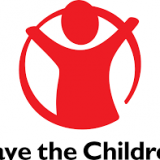Save the Children seeks a Strategic Learning Advisor (SLA) for an anticipated five-year USAID-funded Resilience and Food Security Activity (RFSA) in Uganda. The proposed program will be an integrated, multi-sectoral food and nutrition security intervention. The goal of the Activity is to improve food and nutrition security and resilience among poor and chronically food insecure households and communities. The estimated implementation timeframe 2025-2030.
The Advisor will work closely with all staff to ensure principles of Collaborating, Learning, and Adapting (CLA) are recognized and acted on as core elements of RFSA programming. This staff member will ensure active, intentional, and adaptive learning within and across interventions, and will play a critical role in incorporating refinement activities and learning into implementation. Additionally, the Advisor will improve community engagement; peer-to-peer learning; knowledge capture, sharing, and application; activity-based capacity strengthening; and evidence and data utilization. Working with the Chief of Party (COP) and technical staff, the Advisor will also ensure appropriate and continued coordination and joint-planning with other relevant USAID Bureaus and Missions and other relevant donor activities, host-government initiatives, and private sector actors.
This is a Key Personnel position, subject to donor approval. It is also subject to project award and funding.
National candidates are strongly encouraged to apply.
This position will be based in Kampala.
Responsibilities:
- Lead the formulation and implementation of a detailed program learning plan/agenda and manage associated learning partnerships and processes.
- Manage a program “change log” during the Refine period of the program (initial 12 -24 months), documenting changes to program design required as a result of formative research findings and operational planning discussions.
- Manage learning events and processes. Work with M&E team members to ensure adaptations to the program theory of change as new information comes to light.
- Lead the creation and management of a detailed program knowledge management platform, ensuring full integration with other relevant knowledge management platforms.
- Create guidelines for CLA in the context of the program. Manage CLA ‘pause and reflect’ events and resulting adaptive management analysis, decision-making, program/ approach adjustments, training, and follow-through.
- Work closely with M&E and technical teams to develop and implement innovative approaches for capture, analysis and uptake of qualitative and quantitative information to inform programs, improve performance and agility.
- Support the capacity strengthening of local partners.
- Contribute to the creation of a culture of openness, trust, and continuous improvement within the program team and with partners. Train team members on CLA in addition to ensuring peer-to-peer learning, knowledge sharing and application, activity-based capacity strengthening, evidence and data utilization within the team.
- Provide and formulate evidence and learning into national, regional, and global discussions on resilience, graduation approach, and other relevant technical areas.
Qualifications:
- An undergraduate degree in development studies, international relations, agriculture, nutrition, public health, or a related field with a minimum of five years of relevant experience in which two of those years of experience are in a leaning capacity OR a graduate degree in a related field and a minimum of three years of relevant work experience in international development projects.
- Familiarity with USAID definitions, CLA approaches, and incorporating CLA approaches into large, complex programs.
- Familiarity with USAID Bureau for Humanitarian Assistance (BHA) and RFSA programming preferred.
- Experience with food and nutrition security-related learning processes, knowledge management, organizational learning and development, community of practice facilitation, and capacity strengthening.
- Ability and willingness to travel to project sites on a regular basis.
- Fluency in English is required.
- Strong tool/curriculum development and training skills.
- Demonstrated, structured approach to coordination, sustainability planning, and linkage formulation.
- Demonstrated experience facilitating learning and knowledge sharing processes, establishing and managing dynamic feedback systems to capture experiential learning and unintended consequences, and fostering collaboration across teams or organizations.
- Strong preference for work experience in Uganda or the East Africa region.
- Commitment to child rights and to the aims and objectives of Save the Children.
About Save the Children
Save the Children believes every child deserves a future. In the United States and around the world, we give children a healthy start in life, the opportunity to learn and protection from harm. We do whatever it takes for children – every day and in times of crisis – transforming their lives and the future we share.
Our work for children and their families requires that we commit—at every opportunity—to work together to identify and dismantle persistent systemic and structural racism, inequality, and any other forms of discrimination in this country and beyond. As an anti-racist organization, Save the Children will not tolerate discrimination in any form—in our employment practices, amongst our staff, in our leadership or toward the people we serve. We stand in solidarity with all people to fight for equal rights, justice, inclusion, and belonging.
Save the Children is committed to conducting its programs and operations in a manner that is safe for the children it serves and helping protect the children with whom we are in contact. All Save the Children representatives are explicitly prohibited from engaging in any activity that may result in any kind of child abuse.
Save the Children is committed to minimizing safety and security risks for our valued employees, ensuring all are given training, support and information to reduce their risk exposure while maximizing the impact of our programs for children and families. Our shared duty, both agency and individual, is to seek and maintain safe working conditions for all.
More Information
- Job City Kampala




